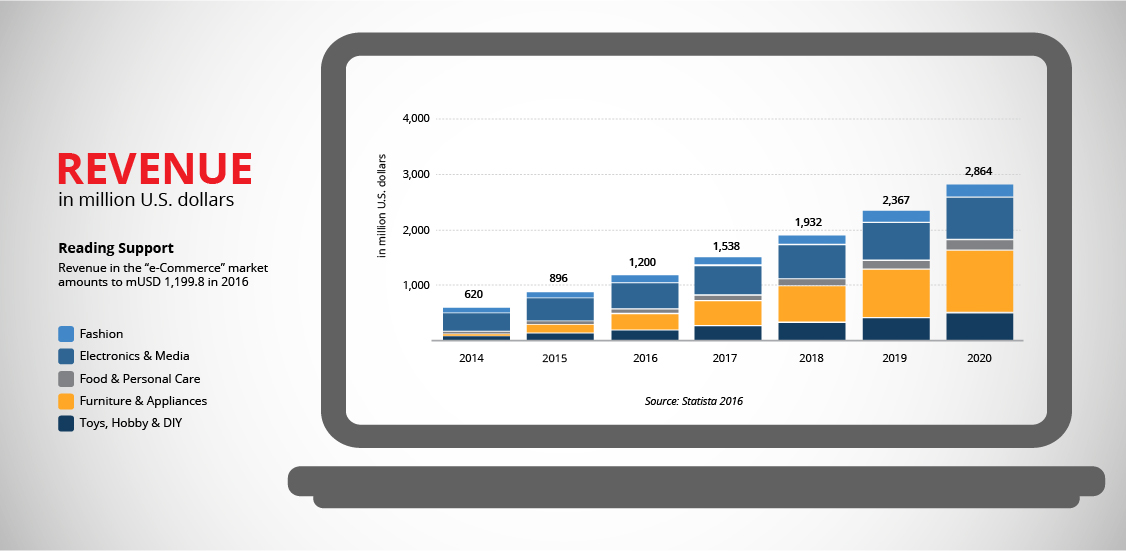
The Potential of Digital Marketing & Consumer Behaviour in Malaysia
According to the data from market research company, eMarketer, Malaysia has the highest “e-commerce” revenue growth last year. Within the past 5 years, the growth of digital marketing in Malaysia has an increase of 31%. Besides that, Malaysia ranked third in Asia for the most rapid growth rate of mobile shopping. In a nutshell, digital marketing in Malaysia has high potential to expand in the near future.

Nanyang Siang Pau, (local Chinese media) has recently published some data on online shopping, from a survey conducted within Klang Valley (sampling size of 108 respondents) - 2016 Malaysian online shopping behaviour



70% is positive about future of online shopping
Some online consumers are not happy with products not covered with warranty or difficulties in contacting the related seller. This has limited the spending power to avoid any misfortune.
Nonetheless, among 102 respondents, more than 70% (72 people) agree that majority will buy online. Only 16% (16 people) disagree while 14% (14 people) are neutral.
The research also discovered that those born after the 90’s are more prone to shop online. Among the 16 respondents aged between 16 to 27 years old, 37.5% shop online more than twice a month and once or twice in 3 months. They spend most on digital products and clothing.
Buy as you like. 50% has no spending quota
As long as the price is reasonable, most online shoppers will make purchase immediately.
There are many shopping platforms nowadays, aside from local platforms like mudah.com.my, lelong.com.my and etc, there are more local and foreign e-marketplaces setting up in Malaysia, for example Singapore’s Lazada, Korea’s 11 Street, local Gemfive and others, with wide variety of product range.
In a survey among 96 people, 50% (46 people) do not limit their spending quota. As long as the price is reasonable, they would immediately place order.
24% (22 people) limit their quota to RM300 to avoid overspending and skyrocket expenses. 26% (24 people) limit their quota to RM100 and below. These group reserves their trust towards online shopping, thinking that by limiting their spending quota, they can avoid big loss if misfortune does happen to them.
